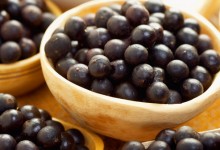
Acai is a Portuguese name for a kind of palm tree that is indigenous to Central and South America. It commonly grows in Brazil and Peru, in swampy areas and floodplains. Scientifically the plant is referred to as Euterpe oleracea. The Portuguese name means a plant that cries or expels water. Currently, acai has become very well-known especially for its fruit; which is small, round and black-purple in color. Acai fruit is used by the indigenous populations in the Brazilian amazon region as food. It is also served as a pulp and a beverage.
Globally, the curiosity in acai has been mainly based on it’s anti-oxidant qualities and of course the use as a weight loss option. The nutritional content of the fruit is composed of proteins, carbohydrates, fat, dietary fiber, nutritional vitamins and low sugar value. In the market, acai is sold as a supporting the immune system of people eating it. It has flavanoids that are responsible for countering conditions such as heart disorders. Extracts of acai are believed to have an effect against peroxyl, peroxynitrite and hydroxyl radicals. Scientists have shown a link between damage caused by free radicals and chronic sicknesses such as cancer, rheumatoid arthritis, cataracts and Alzheimer’s disease among others.
The dense nutritional value of the fruit is also shown to suppress appetite, hence its use as a weight loss option. Acai increases the libido, reduces inflammation and is believed to boost stamina and energy as well as delay some of the signs of growing old